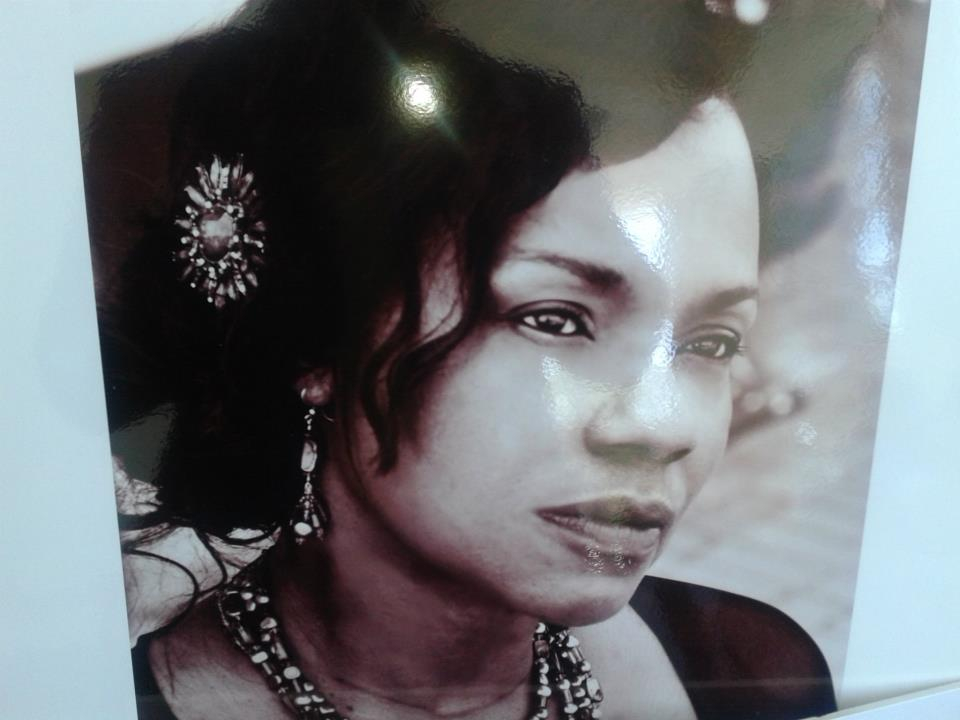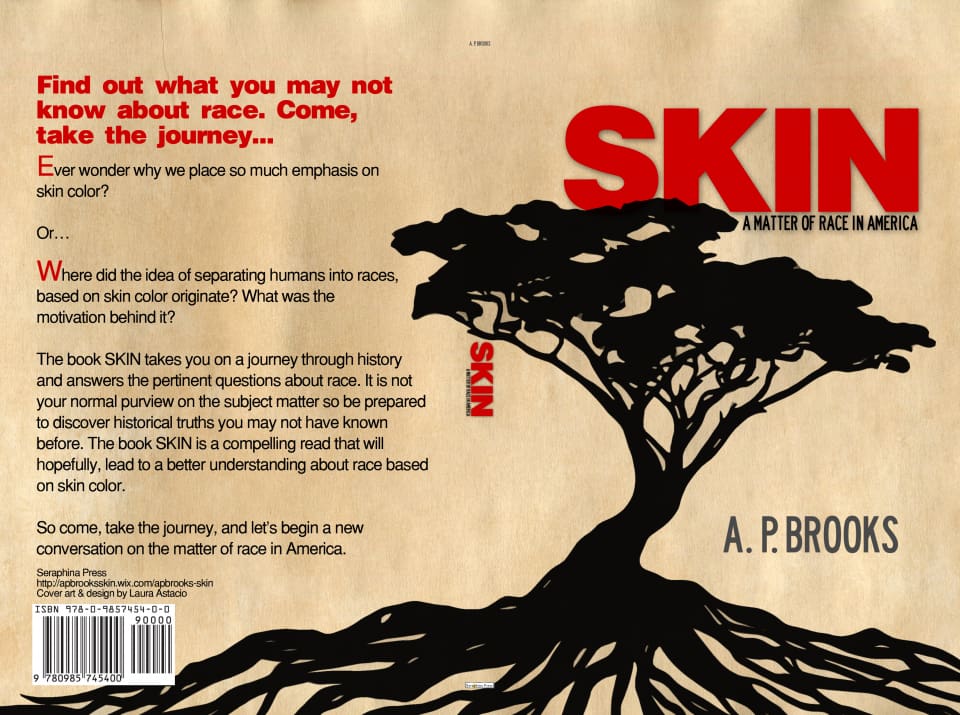
What’s the story behind the title?
With the title, SKIN: A Matter of Race in America, my hope was to encourage readers to ask the question: “Why does race or skin color matter in America?” Even more, to pique their interest in learning just how the concept of skin color was constructed. Yet, the reader cannot draw informed conclusions based solely upon the title — as oftentimes they do — because SKIN connects and informs the reader of knowledge that no other book reveals. Through a composed timeline, SKIN parallels events in history for blacks and whites juxtaposing both in a way that has captivated readers. Quotes by notable figures from the Egyptian, Roman and West African empires as well as others such as Charles Darwin, Frederick Douglass, Harriet Tubman and Abraham Lincoln are sprinkled throughout SKIN, as such readers have expressed a greater insight into the minds of the people living during those times and events. SKIN, they say, inspires them to ‘step out into the deep’.
SKIN creates a narrative on race through time and events, while drawing historical contrasts between Blacks and Whites from the earliest times in history through the end of World War II.

After reading SKIN, many people have expressed a greater understanding of race in America; and as a result, the ideal of race based on skin color no longer has any power over them. Although it is a non-fiction history book, people of all walks of life and ages continue to conclude that SKIN reads less like a history book and more akin to a memoir — a memoir of our lives.
How long did it take you to write this book?
Nine years of research and writing by reviewing thousands of historical papers and artifacts. I was hands-on; not wanting to get the information from today’s scholars that look upon history in hindsight. I viewed the bust of Menes, the first Pharaoh of Egypt who is responsible for Khufu — the largest pyramid in Egypt. I handled enlistment logs of Black Union Soldiers from the Civil War. I read hundreds letters and documents by both Thomas Jefferson and Abraham Lincoln. I painfully digested the works of slaveholders, Charles Darwin and Adolf Hitler. And I interviewed those from whom Black traditions sparked and a German woman who shared her eyewitness account of Hitler and why he came to power — a story that is pivotal to the ideal of superior and inferior humans — something that Trump has re-energized in our society today.
Readers affirm that SKIN brings clarity to America’s blurred lines of liberty and justice for all. SKIN works as a defense against the concept of race in America; a concept that is symbolic of the American experience.
How difficult was it to complete this book?
Finding the balance between work, husband, raising children and overall family life events was difficult. I had to miss some family outings and for many years set my clock to 2 a.m. so that I could write until time to start the day again. I forfeited weekends and evenings. It was the best of times and the most challenging of times.
Was your career choice a deliberate decision or a gradual and natural evolution?
I’ve loved words as early as I can remember. The writing naturally followed. Went to college for journalism, encouraged by my high school teachers. Had some early recognition in writing — one of my poems was selected to represent my elementary in the Highlights Magazine. Writing SKIN was my destiny because it encompasses my entire life’s journey.
Describe what separates your book from others on the subject of race.
No other book puts back generational history for both Blacks and Whites, like SKIN does. Entrenched in facts, no other book denounces so much of what we think about race. No other book reconnects Blacks to their historical identity which equates to historical value. And for Whites, the book reconnects them to little-known history, allowing them to better understand their relationship to all of humanity.
The knowledge found in SKIN is the nucleus for destroying racism and I believe that SKIN can truly be the beginning of the movement. We must simply go quiet, read, learn and gain a consensus to move forward.
















